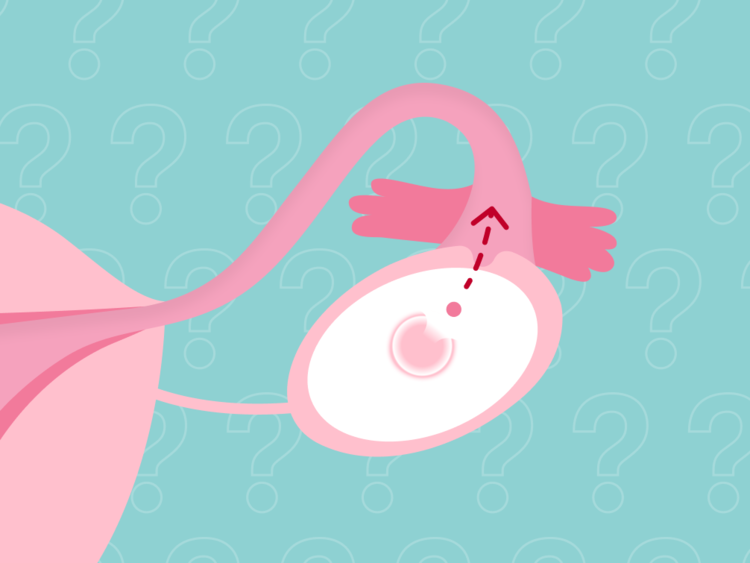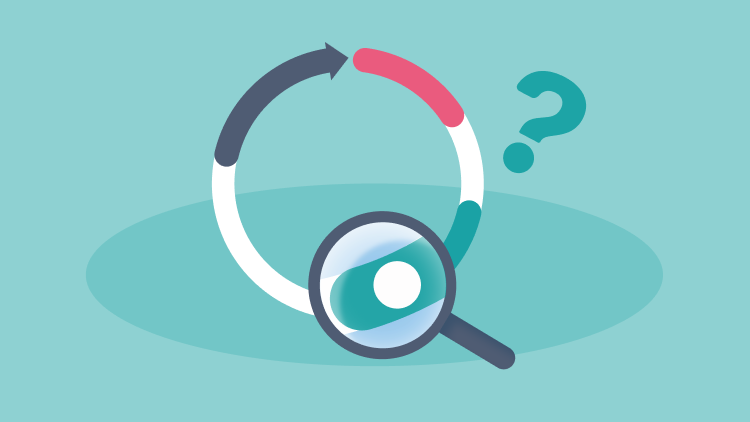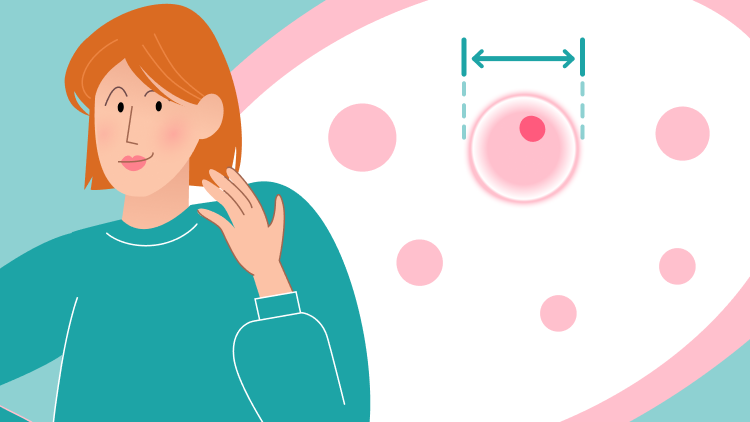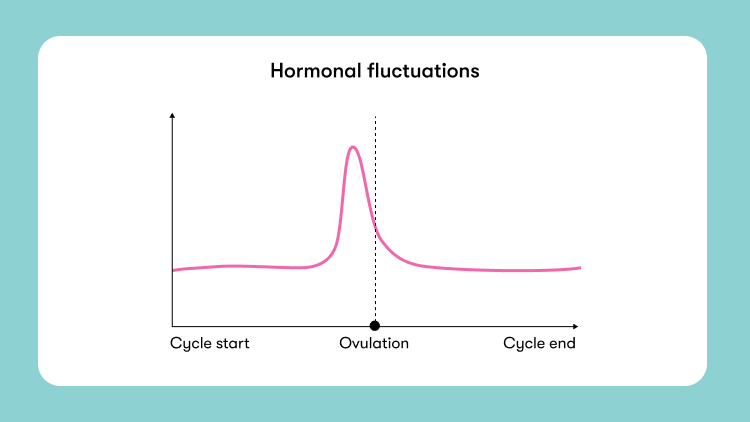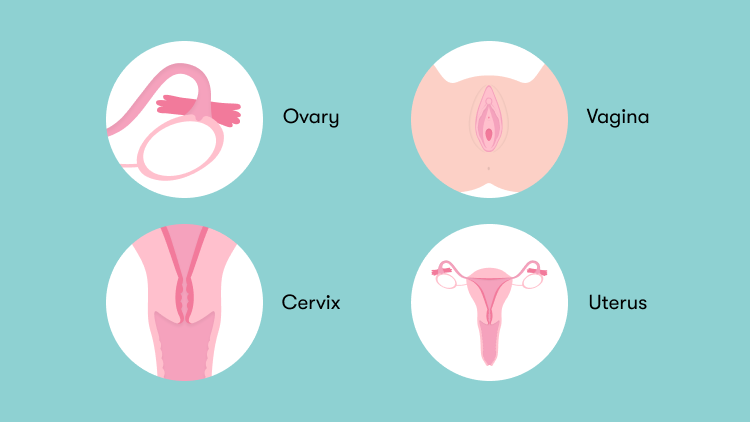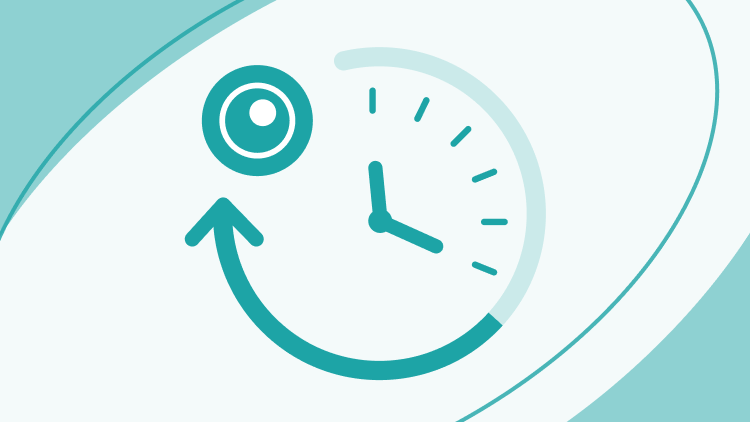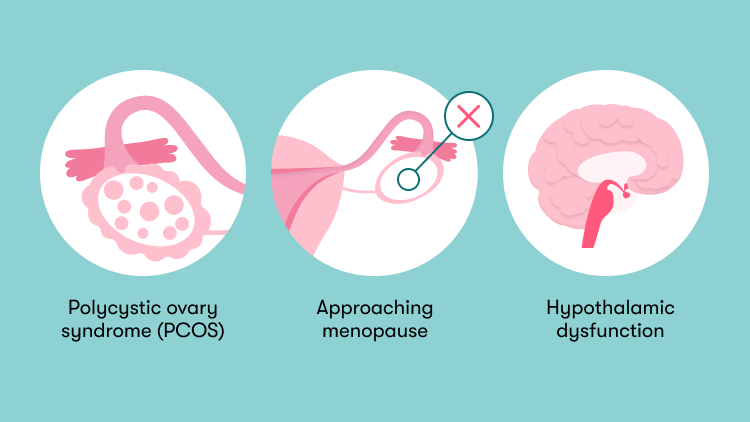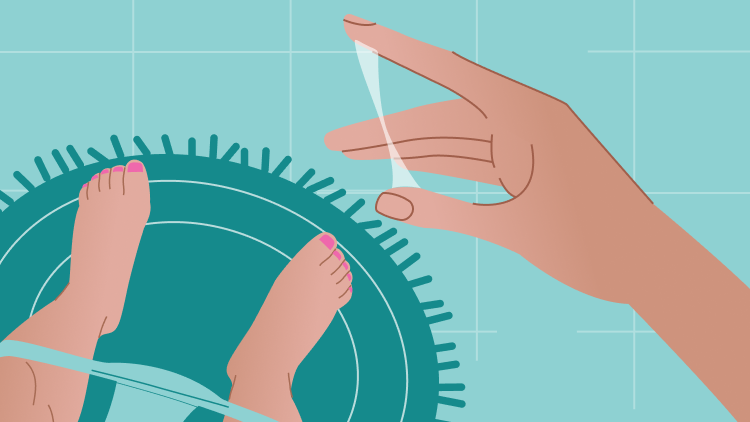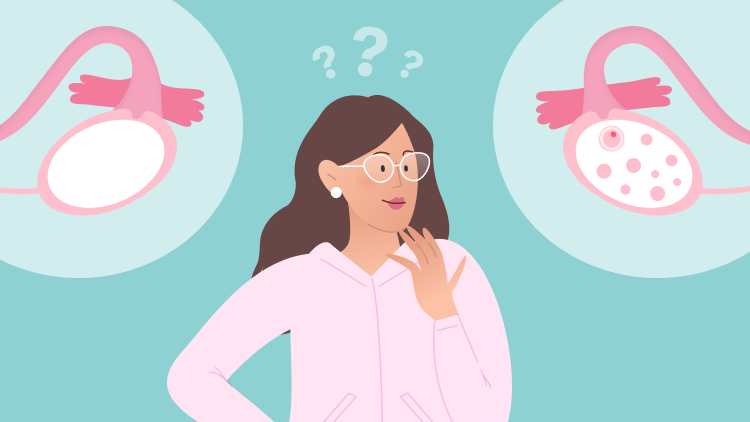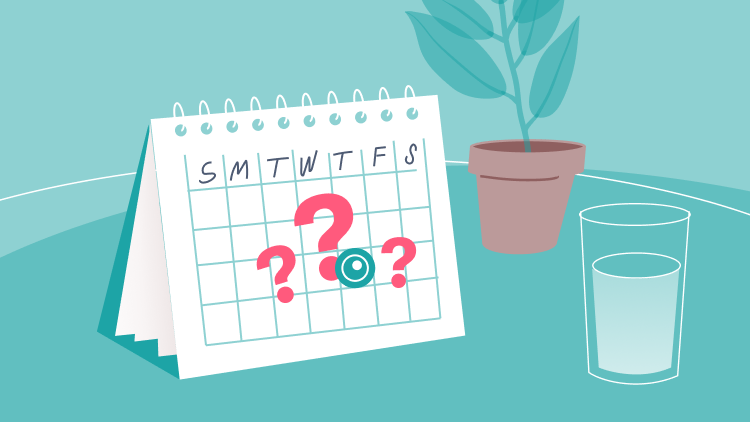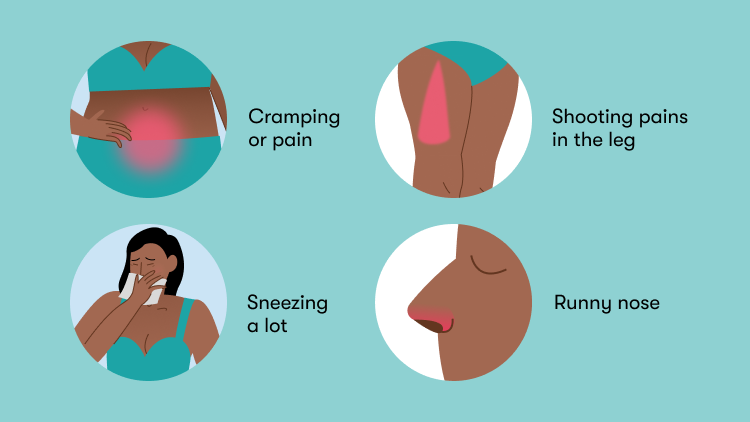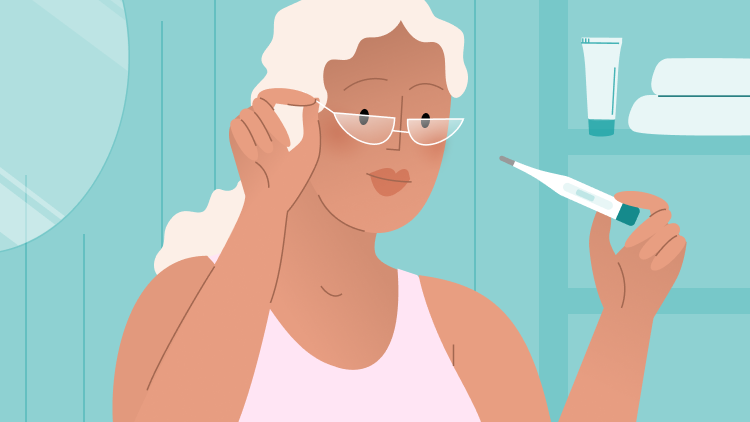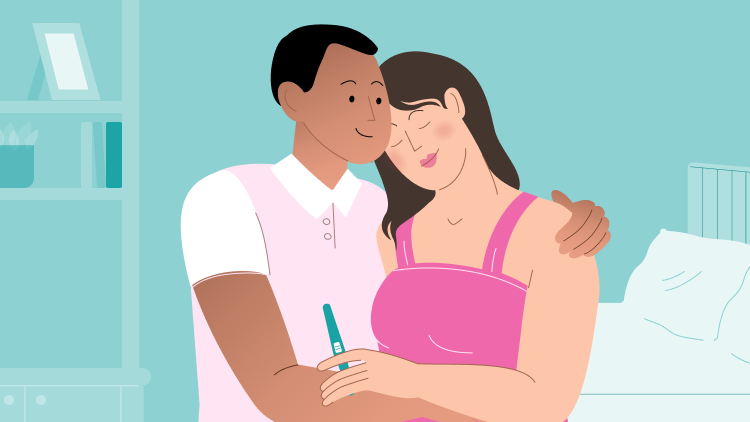Ovulation quiz: How much do you know about your cycle and fertility?
Mostly, we characterize our menstrual cycles by the arrival of a period. But there’s another big event that takes place in the cycle: ovulation.
Whether you’re trying to get pregnant or you’d rather avoid it, it’s good to understand what ovulation is, when it’s likely to happen, and how it relates to your fertile window. So … ready to test your knowledge? Take Flo’s ovulation quiz to see how much you know about the ins and outs of ovulation and where there are knowledge gaps you can fill. Because knowledge is power, remember. Good luck!
Disclaimer: This quiz is designed to help you learn more about ovulation, but it is for educational purposes only. While this quiz may help you learn more about your most fertile days, you should not use this information alone to prevent pregnancy. Menstrual periods are different from person to person and month to month, and ovulation can vary.
Start Quiz
At what point in the average menstrual cycle does ovulation occur?
On the third day of your period
Next
How big is the egg released in ovulation?
Next
Which hormone surges just before ovulation?
Next
Which reproductive organ releases an egg during ovulation?
The uterine (fallopian) tube
Next
How long does the egg survive after ovulation?
Next
What can cause someone to stop ovulating?
Polycystic ovary syndrome (PCOS)
Next
Why does cervical mucus (or discharge) become clear and slippery, like raw egg white, around the time of ovulation?
So it slides out of the vagina quicker and doesn’t block the way for sperm
To help keep the egg inside
So it’s easier for sperm to swim through the reproductive system to find an egg and fertilize it
To trap the rest of the sperm once one has fertilized an egg
Next
How many eggs are you born with?
None — they start developing after birth
None — they start developing when you hit puberty
Approximately 100,000 to 500,000 eggs
Approximately 1 to 2 million eggs
Next
How many days make up your “fertile window”?
1 — just the day of ovulation
2 — the day of ovulation and the day before
7 — the day of ovulation, the day after ovulation, and the 5 days before
2 — the day of ovulation and the day after
Next
Which symptom do some people report noticing around the time of ovulation?
Shooting pains in the leg
Next
What typically happens to body temperature around the time of ovulation?
It drops dramatically, then rises quickly again
Next
What chance does a healthy couple under the age of 35 have of conceiving during each ovulation cycle?
Next
{"showCounter":false,"counterAnswers":"","correctTitle":"Correct Answer","noCorrectTitle":"Not really","allIDCorrect":false,"questions":[{"question":0,"correctAnswer":1,"answerDescription":"<p><span style=\"background-color:transparent;color:#000000;\">The exact day of ovulation varies from person to person (and even from cycle to cycle), but on average, it happens around the middle of your cycle. The average person\u2019s cycle lasts 28 days, but it can range anywhere from 21 to 35 days and still be considered \u201cnormal.\u201d So if you have a 28-day menstrual cycle, you can expect ovulation to occur around the 14th day.<\/span><\/p>"},{"question":1,"correctAnswer":0,"answerDescription":"<p><span style=\"background-color:transparent;color:#000000;\">A mature egg cell, also known as an oocyte (for the fact fans out there), is among the largest cells in the human body, being 0.1 mm in diameter. Sounds tiny, right? In fact, it\u2019s one of the only human cells that is just about visible to the naked eye. And when you compare it to the size of sperm, you\u2019ll get a better idea of what we mean; sperm cells tend to be somewhere between 0.0000037 mm and 0.0000047 mm in length. Now <i>that\u2019s <\/i>tiny.<\/span><\/p>"},{"question":2,"correctAnswer":0,"answerDescription":"<p><span style=\"background-color:transparent;color:#000000;\">Levels of luteinizing hormone, also known as LH, fluctuate throughout the menstrual cycle, rising sharply just before you ovulate and dropping once the egg has been released. Typically, the LH surge will come around 24 to 48 hours prior to ovulation. This is what an at-home ovulation test searches for when you dip it in urine.<\/span><\/p>"},{"question":3,"correctAnswer":3,"answerDescription":"<p><span style=\"background-color:transparent;color:#000000;\">While all of the female reproductive organs listed above are used in the process of conception, it\u2019s the ovaries that release the egg each cycle. Eggs that are still developing live inside little sacs of fluid in the ovaries called follicles. Once matured, one egg (or, very occasionally, more than one) is released from the ovary and travels down the uterine tube.<\/span><\/p>"},{"question":4,"correctAnswer":1,"answerDescription":"<p><span style=\"background-color:transparent;color:#000000;\">Once it\u2019s released from the ovary, an egg moves down the uterine tube, where it waits to be fertilized. The egg can stay there for anywhere between 12 and 24 hours. After this time, if the egg isn\u2019t fertilized, it disintegrates.<\/span><\/p>"},{"question":5,"correctAnswer":3,"answerDescription":"<p><span style=\"background-color:transparent;color:#000000;\">When someone doesn\u2019t ovulate, it\u2019s called anovulation, and this can happen for a number of reasons. Some such reasons include approaching menopause (when your periods stop due to declining hormone levels), having PCOS (a condition that affects how the ovaries work), and hypothalamic dysfunction (where the hormones required for ovulation are disrupted due to excess stress, extremely high or low body weight, dramatic weight gain or loss, or medical conditions). If you believe you\u2019re not ovulating, reach out to your doctor to start exploring why.<\/span><\/p>"},{"question":6,"correctAnswer":2,"answerDescription":"<p><span style=\"background-color:transparent;color:#000000;\">Throughout most of the cycle, healthy cervical mucus (or discharge) is thick, white, and dry. But when you become fertile, shortly before and around the time of ovulation, it becomes transparent and stretchy \u2014 just like raw egg whites. The reason the mucus takes on this consistency is to help sperm swim more easily up through the vagina, the cervix, and the uterus to where the egg is waiting in the uterine tubes.<\/span><\/p>"},{"question":7,"correctAnswer":3,"answerDescription":"<p><span style=\"background-color:transparent;color:#000000;\">One of the most interesting facts about female fertility is that it\u2019s thought all your eggs are created while you\u2019re still in the womb. Unlike men, who continue to produce sperm throughout their lives, a woman is believed to be born with all the eggs she\u2019ll ever have \u2014 somewhere between 1 and 2 million of them. Thousands of eggs die each month as you grow up, so by the time you reach puberty and later start ovulating, you\u2019ll have around 300,000 eggs left.<\/span><\/p>"},{"question":8,"correctAnswer":2,"answerDescription":"<p><span style=\"background-color:transparent;color:#000000;\">It\u2019s easy to assume you\u2019re only fertile for the very brief window of time in which you\u2019ve released an egg. However, your fertile window actually lasts for around 7 days: the day of ovulation itself, up to a day afterward, plus the 5 days beforehand. That\u2019s because sperm can survive inside the uterus for up to 5 days. So if you have sex in the lead-up to ovulating, sperm can stick around and be in with a chance of fertilizing the egg when it\u2019s eventually released. While this whole time period is known as your fertile window because it\u2019s possible to conceive, your chances of pregnancy will generally increase as you approach the day of ovulation.<\/span><\/p>"},{"question":9,"correctAnswer":0,"answerDescription":"<p><span style=\"background-color:transparent;color:#000000;\">Lots of women and people who ovulate report experiencing ovulation pain, so much so it\u2019s even got a name. The word mittelschmerz is German for \u201cmiddle pain\u201d or \u201cpain in the middle of the month,\u201d and it\u2019s often used to describe pain associated with ovulation. Not everyone who ovulates will experience this, however, and the feeling can vary greatly between individuals and even between menstrual cycles. Sometimes it can be a dull cramp, while other times, it might be a sharp or sudden twinge in your abdomen. Usually, it\u2019s only noticed on one side, depending on which ovary has released an egg.<\/span><\/p>"},{"question":10,"correctAnswer":2,"answerDescription":"<p><span style=\"background-color:transparent;color:#000000;\">Ovulation causes a very slight (around half a degree) increase in basal body temperature (BBT), and some people like to track this to determine when they\u2019re ovulating. However, doctors tend to say that tracking your BBT can be tricky whether you\u2019re trying to conceive or you\u2019d rather prevent pregnancy. This is because it\u2019s generally more useful for telling you that you ovulated <i>after<\/i> it happened (by which point, you may have missed your fertile window or inadvertently already conceived). But if you do want to monitor your daily temperature for conception purposes, you need to do this consistently over several weeks, and at the same time each day, to spot a slight rise. It\u2019s also useful to note that other factors can affect your temperature, including illness, stress, alcohol, certain medications, and interrupted sleep cycles, so this isn\u2019t always a foolproof way to know you\u2019ve ovulated.<\/span><\/p>"},{"question":11,"correctAnswer":1,"answerDescription":"<p><span style=\"background-color:transparent;color:#000000;\">A young, healthy couple has around a 20% chance of getting pregnant every time ovulation happens, so you shouldn\u2019t get disheartened if it doesn\u2019t happen for you immediately. After 3 cycles of trying, 45% of couples will have conceived, 65% after six, and 85% after 12 cycles. Fertility in women is believed to start steadily declining from the age of around 35. This doesn\u2019t mean you won\u2019t conceive if you\u2019re slightly older \u2014 far from it \u2014 it just means the chances of getting pregnant each month gradually decline. By the age of 40, you have around a 10% chance each month.<\/span><\/p>"}]}
You scored:
There’s always more to learn about our bodies, so we hope this quiz has left you feeling more in the know.
Flo is on a mission to empower everyone who has a period to understand more about their bodies and their cycles. You deserve to feel fully informed about the amazing things your body does every month, like ovulation! Whether you want to get pregnant or it’s something you’d rather avoid right now, you’ll thank yourself for knowing more about what’s going on inside your reproductive system.
Next level of knowledge and insights
Accurate cycle predictions and knowledge of 100+ medical professionals at your disposal.
How Flo can help me?
With over 100+ medical experts, Flo supports women during their entire reproductive lives and provides curated cycle and ovulation tracking, personalized health insights, expert tips, and a fully closed community for women to share their questions and concerns.
Over 240 million people have downloaded Flo, and 48 million people use it on a monthly basis, which makes Flo the most popular women’s health app globally.
Well done — you’re well on your way to becoming an ovulation pro!
Flo is on a mission to empower everyone who has a period to understand more about their bodies and their cycles. You deserve to feel fully informed about the amazing things your body does every month, like ovulation! Whether you want to get pregnant or it’s something you’d rather avoid right now, you’ll thank yourself for knowing more about what’s going on inside your reproductive system.
Next level of knowledge and insights
Accurate cycle predictions and knowledge of 100+ medical professionals at your disposal.
How Flo can help me?
With over 100+ medical experts, Flo supports women during their entire reproductive lives and provides curated cycle and ovulation tracking, personalized health insights, expert tips, and a fully closed community for women to share their questions and concerns.
Over 240 million people have downloaded Flo, and 48 million people use it on a monthly basis, which makes Flo the most popular women’s health app globally.
